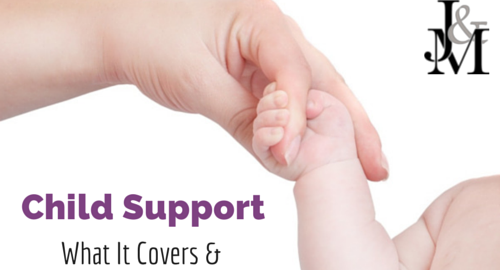Divorce is one of the most stressful periods an individual can go through. It is a literal tearing apart of your family structure. The comforts of home, the solace of family, the communal regard for loved ones within your household—this is all called into question during the course of a divorce, and it can wreak havoc on one’s mental health and feelings of stability.
The process of undergoing a divorce is indeed stressful, and this high level of stress will often push people to enter a state of self-preservation. This is a state of being in which survival is of the utmost importance, and anyone or anything that is not necessary to survival takes a backseat to the people, belongings and habits that will pull you through. Many people fall into this state of being without realization, and it can further tax relationships that aren’t already damaged by the divorce process. Going into a state of self-preservation yourself, or working through the divorce process with an ex who is in this state will be additionally difficult, as it means you are functioning at a more primitive and less healthy manner.
Ultimately, the decision to end a marriage is one of the most difficult you’ll likely make in your lifetime. It can be traumatic, chaotic and conflicting, and if children are involved these feelings are amplified. Being married once means that you and your ex understand one another’s nuances and ways of thinking, and this can mean more hurtful and hostile interactions in many contexts. Feelings of anger, resentment, impatience and guilt are just as common and overwhelming as feelings of isolation, doubt, betrayal and shock. Divorces are commonly slow and the process of meeting and completing the required paperwork may be agonizing. All of this is reason why it is absolutely paramount that every party involved in the divorce process is supported by professionals who understand the ins and outs of the procedures, as well as counselors who can offer additional mental support so to help you keep other areas of your life from becoming interrupted by the looming stress of divorce.

Over-Generalizations about Your Ex or Your Marriage
A hasty generalization is one of the most common logical fallacies—something that you learn about in school. We learn information and we draw conclusions based off that single fact. The conclusion could be irrelevant, fueled by anger and hurt feelings. Unfortunately, it is something that happens all too often in the course of a divorce, something that isn’t helpful in maintaining a positive relationship with the other party.
Statements that include the words “always” or “never” are generally not true. Yet, during a divorce, many ex-spouses will throw these words at one another. “You always lie” or “you’ve never loved me” are hurtful, and in most cases entirely untrue. Using phrasing like this can mentally scar the other party and make the current situation worse. For this reason, it is a good idea to avoid terminology like all, always, only, totally and never, and instead use phrasing like sometimes, it seems, often, rarely or to an extent.
The Label Maker
Life is a lot easier when everyone fits into a certain niche. This is why we migrate so often towards others who are like minded. We identify someone as being a certain way and quickly push them farther into that corner, helping to easily identify their way of being. However, these labels that we ascribe to others are most often inaccurate. And when we have negative feelings towards another person, we are quick to hastily give someone a label that they do not rightly deserve.
If you are not careful, labeling can quickly become name calling and stereotyping, and this can lead to more distrust and hurt emotions between the divorce parties. Hurtful names and labels coming from a person you once trusted and loved can be psychologically scaring, especially when those labels are undeserved.
It isn’t just the other party who might be hurt by the words coming out of your mouth. Negative self-talk is a common concern during divorce. Saying things like “I’m a loser,” or “I’m not lovable” or thinking self-pervasive thoughts like “it is no wonder she/he left me,” will only damage your own self-esteem and bring your emotional level further into the depths of distress.
When you put a label on someone like this, you are focusing on one negative quality and letting it completely engulf the whole individual. This will keep you angry at the other person and entirely disgusted with yourself. Give up the practice and try using more genuine phrasing.
Playing the Marriage Blame Game
There is a lot that goes into a divorce. Usually this includes a lot of lies, a lot of arguments and a handful of misunderstandings. Rarely is the fault of a divorce entirely on one party. Putting that level of blame on another individual is not helpful, and will usually result in further arguments. Be careful not to assign blame to one person in particular. Acknowledge that what is happening is happening, regardless of the fault. This is especially important when children are involved, as who is at fault for the divorce will be something that sticks in their minds.

Fear, Loss and Other Negatives at the Forefront of Your Mind
Divorce is rarely planned and often not necessarily looked forward to. Yet, most people who are undergoing a divorce can acknowledge that their current marriage situation wasn’t ideal, and that they do plan to be happier after the divorce is finalized. So why spend so much energy getting heated up about the fear and loss that accompanies divorce? Seeing only the negative just reinforces the anxiety and depression you are already experiencing. Focus on what good may come. This sort of positive mindset will be helpful to you in keeping your spirits up.
Catastrophizing
There is an old proverb that says everything that can go wrong, will. When you are already feeling negative or worried it is easy to get caught up in this line of thinking and catastrophize the worst possible scenario. However, the worst thing that can happen is not usually what does happen, so there is no reason to spend so much mental energy stressing over it. Focus instead on what is likely to happen, or better yet, stop thinking about the future and focus on the present.
Divorce brings up a lot of unknowns, and this can bring on some additional stress. Do your very best not to dwell in that negative space. Asking yourself questions like “how will I ever pay my bills?” or saying things like “nothing will ever be the same” aren’t going to help you reach your next step in life. Focus on the here and now and what you can do to make your situation better.
Playing the Victim
This goes hand in hand with catastrophizing. When you are constantly thinking about the worst thing that can possibly happen to you, it is not a far jump to begin that the worst is already happening to you. You are not a victim in your own life. You are the star of the show. The whole scene revolves around you. So, it is up to you to take on that roll and live up to it.
Bad things happen, and divorce is not an easy thing to go through—no one will tell you that it is. Even if it isn’t what you wanted, you can make the best of the situation by standing strong on your own two feet and finding ways to thrive in the change that is surrounding you. Instead of concentrating on the things that go wrong, focus on what works. Find solutions; don’t just focus on the problems. Essentially you have two options in every situation: you can play the victim and blame everyone else for the rest of your life, or go out and grab the life you want.

Suggestions to Thrive During and After a Divorce
There are things that you can do during the course of your divorce to stay strong and maintain as good a relationship as possible with your ex. The very first thing on this list is to step up and take responsibility for your own life. This will be challenging to do on your own, especially if your ex was greatly involved in your decisions regarding things like your career and finances. However, understanding that you are capable of functioning without him or her is paramount. You have to trust yourself as being able to succeed. Once you’ve taken the stride to be responsible for yourself, it is time to forgive. No one is perfect. What mistakes did your ex make, and how are those mistakes any less forgivable than the ones you’ve made at some point? You don’t need to work out the particulars, but parting on amicable terms by acquiring mutual forgiveness will be helpful in maintaining your psychological strength during the divorce process.
Finally, take steps to do something that will make you happy. Don’t put yourself down if you don’t succeed overnight. If you need any additional support or would like someone to talk to as you process the divorce, see a counselor.
Utah Divorce Attorney Can Help
Here at Jennings & Medura, we understand the emotional side of divorce as well as the legal side. Our philosophy is to assist our clients in resolving conflict in a way that most efficiently meets their needs and goals, being mindful of the significant financial and emotional toll that these issues can take. Throughout decades of practicing family law in Salt Lake City, Utah and surrounding areas, we have built our reputation of success. For help with your Utah divorce, start with a no-obligation consultation to see what we can do for you. Get started by contacting us today!














